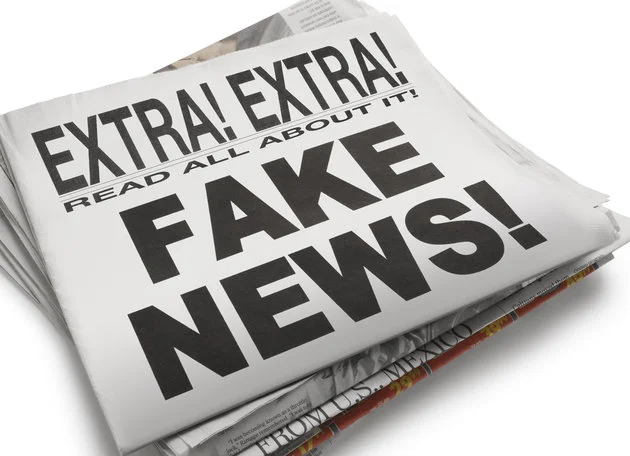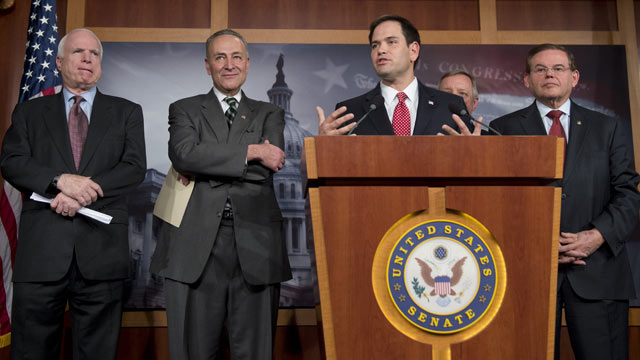In the era of health crazes and anti-obesity measures, the Nutrition Facts label is often one of the first items a potential shopper looks at when purchasing groceries. While these labels are intended to help "make quick, informed food choices that contribute to a healthy diet," they are fraught with misleading numbers and overly general assumptions that can result in confusion and poor choices.
Read MoreIn the midst of a clearly losing message and rapidly changing demographic profile, if Republicans hope to win in the 21st century they must address America’s minority populations with a message of more “inclusive conservatism”. Given the simultaneous rise of America’s Democratic Party and progressive movement, the future of American conservatism might hang in the balance.
Read MoreDeclining religious faith in America might open the ballot to those previously deemed unelectable, but could leave a dangerous void…
Read MoreWhy we should be taking a closer look into the relationships between the Saudi Arabian government and Manafort, Kushner, and other figures within the Trump administration including Trump himself, and what these ties indicate about the United State’s involvement with recent developments within the Middle East.
Read MorePlagued by earthquakes, unrest, and economic woes, Mexico teeters on the brink.
Read MoreActivist investors perform valuable functions in modern capital markets.
Read MoreThe Trump administration’s proposed budget cuts to the Interior Department and National Park Service would be devastating to the preservation and operation of our national parks.
Read MoreThe Republican Party’s Reagan coalition has allowed them to keep a solid hold on government for forty years. The question now is, has Donald Trump’s election spelled the end of the Reagan coalition, and what will follow it?
Read MoreCryptocurrencies, steadily increasing in popularity since 2016 in mainstream media, are largely unregulated across the globe. It is certainly an international challenge, as are most digital-age issues, but what is the U.S. doing about it now and what should they do about it to ensure healthy markets for its consumers?
Read MoreWe need a digital government for this digital era. With the advent of blockchain technology, we now have the power to build online voting systems that are not susceptible to corruption and which can be verified by every participant.
Read MoreChina claims to offer a “no-strings attached” investment opportunity to countries in Africa and around the world. What are the drawbacks of accepting aid from the Chinese government?
Read MoreThe aftermath of the Civil War spurred an unusually progressive movement in Virginia’s political culture. This is the story of the Readjuster Party.
Read MoreDifferent beliefs about poverty affect public policy and social actions taken by the government to fight it. As a result, the solution to ridding the nation of poverty is also inherently political in nature, yet it requires more of a holistic social policy approach that combines both structural and cultural theories as to why poverty continues to persist.
Read MoreThe rate of obesity amongst the American public continues to rise, and the Trump Administration must do its part to halt one of the nation’s greatest public health crises. However, President Trump’s Department of Agriculture and Food & Drug Administration have been sharply criticized for relying too heavily on the food industry to self-regulate — an idea that has proved ineffective in the past. Heavy government mandates are also unlikely to unilaterally solve the obesity epidemic. Instead, a non-partisan and scientifically-focused advisory body that acts as a compromise between these two approaches could be a viable solution that contributes to the health of Americans as well as appeases industry and government concerns.
Read MoreTaking liberal arts courses will help students become successful business leaders.
Read MoreLegal marijuana should be treated as a public health issue. This requires medical professionals.
Read MoreIn order to completely understand the potential consequences of Trump’s anti-environmentalist policy, it is necessary to look at how his relationship with both domestic and global initiatives to solve emerging environmental issues would affect those who are most vulnerable: people of color.
Read MorePaleontology is a revered but shrinking discipline. The market for fossils, however, is vibrant and valuable for the future of the field.
Read MoreFake news proves a unique challenge to journalistic integrity and the maintenance of an informed public, as it involves a multifaceted array of social psychological causal factors. Further compounding the problem is the false labeling of articles critical to the Trump administration as “fake news,” creating the incorrect perception that even discerning individuals lack the means of evaluating media.
Read MoreIn 1981, Ronald Reagan declared that “illegal immigrants in considerable numbers have become productive members of our society and are a basic part of our work force. Those who have established equities in the United States should be recognized and accorded legal status.” In this regard, today’s Republican Party would be unrecognizable to the conservative icon. So we must ask: what changed, how, and why?
Read More


![One Nation, Under [ ]](https://images.squarespace-cdn.com/content/v1/58b099de46c3c4cbc10fb16f/1518802238657-4FKUR0NTKD3QEWTW7HJC/City_Methodist_Church%2C_Gary.jpg)
















